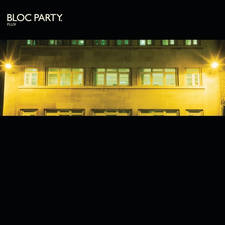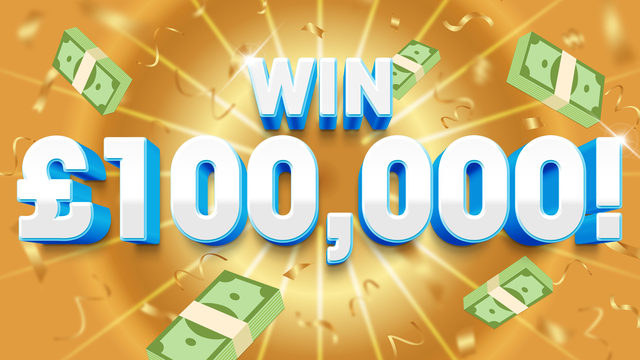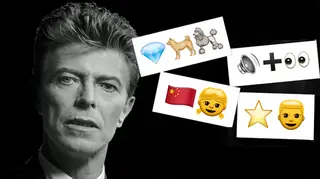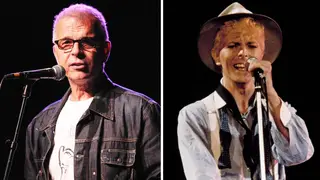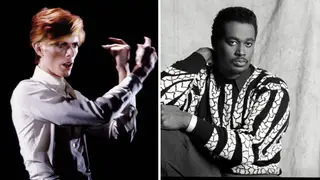What did David Bowie play at his very first Glastonbury set in 1971?
22 June 2024, 09:00
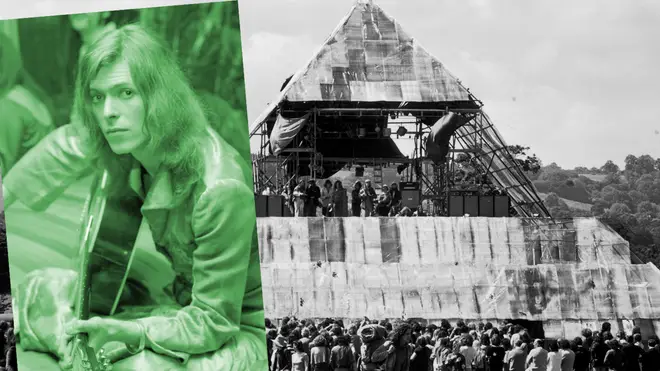
Bowie performed at Glastonbury 50 years ago today - but what was on his setlist?
Listen to this article
David Bowie was not an overnight success. Before he first made the charts with Space Oddity in 1969, he'd been in seven different bands, released eight singles and one album. His new, heavier, sound was showcased on the album The Man Who Sold The World, which also failed to get much attention on its release in the Spring of 1971. It looked like David Bowie would be forever known as the "Major Tom guy".

So it was a world-weary Bowie that agreed to perform at the second ever Glastonbury festival (well, technically the first; the 1970 edition had been announced as the charmingly-titled "Worthy Farm Pop Folk & Blues festival").
Now known as "Glastonbury Fair", the event took place at Michael Eavis's farm in Pilton, Somerset, between 20 and 24 June 1971. Organised by Andrew Kerr and Arabella Churchill, the event was free, mainly as a reaction against what they saw as the commercialisation of music events in the UK.
The festival saw the first appearance of what would become a Glastonbury fixture: the Pyramid Stage, built out of metal and plastic sheeting. The festival was filmed by Nicolas Roeg, who would later work with Bowie on his feature The Man Who Fell To Earth and released in May 1972 as the movie Glastonbury Fayre.

Bowie was originally due to take to the Pyramid Stage at 7.30pm on Saturday 22 June, followed by Gong, Traffic and Pink Floyd closing proceedings at 1am (although in the event, Floyd cancelled).
However due to the late running of the festival, Bowie was offered a midnight slot, but this was changed after there was some opposition from locals about music being played this late.
Therefore, David Bowie played his first ever Glastonbury set around 5am on the morning of Wednesday 23 June, accompanied by his new musical partner, guitarist Mick Ronson.
In 2000, just before he returned to Glastonbury for his second ever appearance, Bowie wrote in Time Out: "All I can remember is staggering out of the Worthy farmhouse at some ungodly hour. I had been ensconced in there for some of the night, drinking and smoking and such like."

According to the excellent Bowie Bible site, Bowie played the following songs at Glastonbury 1971:
- The Supermen
- Quicksand
- Changes
- Oh! You Pretty Things
- Kooks
- It’s Gonna Rain Again
- Memory Of A Free Festival
- Amsterdam (a Jacques Brel cover)
- Song For Bob Dylan
- Bombers
The majority of the set features songs from Bowie's album Hunky Dory, which had been released the previous December, including the live debut of the classic Changes.
The Supermen was from his album The Man Who Sold The World, while Memory Of A Free Festival dated back even further, to his self-titled 1969 LP. Bombers was written for Hunky Dory but left off at the last moment and It's Gonna Rain Again was recorded for Ziggy Stardust but left in the vaults for a number of years.
Memory Of A Free Festival was written about Bowie's own involvement in the Beckenham Free Festival in Bromley, which had taken place in August 1969. Glastonbury goers who were awoken by the sound of Bowie's set were delighted to see that the song's refrain at the climax - "The sun machine is coming down and we're gonna have a party" - neatly coincided with the dawn light appearing across the Vale of Avalon that June morning.

Memory Of A Free Festival David Bowie
For Bowie, his most famous song at the time was Oh! You Pretty Things, which had been a hit for pop star Peter Noone (formerly of Herman's Hermits) the previous month. "A Dutch girl, even more stoned than myself, insisted on jumping onstage to duet with me," remembered Bowie some twenty years later.
While many of the estimated 12,000 people who attended the 1971 festival will have missed Bowie's set because they were still asleep, the small crowd's response gave the musician much-needed ego boost.
Towards the end of the set, he told the audience: "“I just want to say that you’ve given me more pleasure than I’ve had in a good few months of working, and I don’t do gigs any more because I got so p***ed off with working, and dying a death every time... It’s really nice to have somebody appreciate me for a change.”

David Bowie Glastonbury Festival 1971 Acoustic The Supermen
While the festival was recorded, Bowie and his management asked the organisers to leave them off the accompanying record and out of the feature film, offering them an acoustic version of The Supermen instead.
The reason was, they felt, that the Glastonbury set didn't represent where Bowie was going. And, in retrospect, they were right - his next step would be the glam rock messiah Ziggy Stardust.
